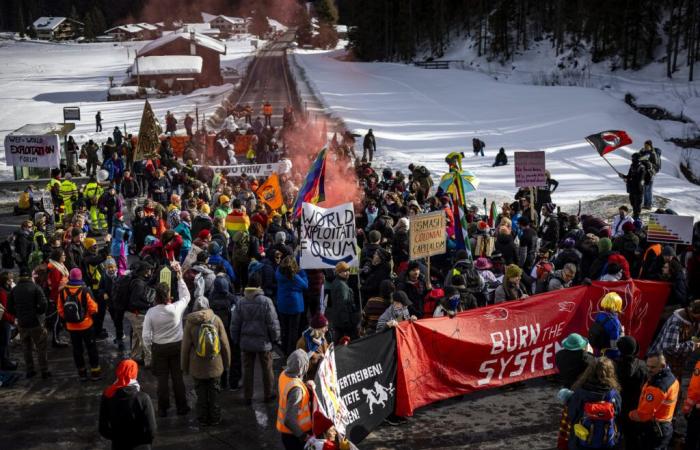Around 5,000 soldiers, police officers from all cantons and a 52-kilometer fence, for the 3,000 participants of the World Economic Forum (WEF). The global economic and political elite barricade themselves in private from Monday in Davos to design a world in their image, just at the time of Trump’s inauguration.
Key theme of this edition of the great mass of globalized capitalism: “Collaboration in the era of artificial intelligence”. This essential discussion will take place far from democratic spheres, serving only the interests of the richest, to the detriment of citizens. And yet, as the Group for a Switzerland without an Army (GSSA) recalled during the anti-WEF demonstration on Sunday, AI is increasingly integrated into military decisions. Autonomous weapons systems are sowing death in the wars in Gaza and Ukraine, facial recognition algorithms identify targets to be eliminated, without international regulation.
On social networks, current developments contribute to the polarization of opinion and disinformation, threatening democracy more than ever. Amnesty International has highlighted the risk that the promises of new technologies will lead us towards a dystopian world. It is not at Davos that answers will be found to these challenges, quite the contrary, nor to that of the terrible ecological record of AI.
-At a time when the wealthiest are strutting their stuff in Davos, Oxfam is highlighting the extent of inequality. In 2024, the fortunes of billionaires have increased further, while the fight against poverty stagnates. In Switzerland too, inequalities are glaring. In our country, “a person belonging to the richest 1% takes only nine days to earn as much as a person belonging to the poorest 50% in one year,” warns Solidar Suisse. The richest are also responsible for the largest share of CO2 emissions and thus worsen living conditions around the world.
The fight against these unbearable disparities could take place at the ballot box. The initiative for the future of Socialist Youth calls for a 50% tax on inheritances exceeding 50 million francs, to finance the ecological transformation of the economy. In December, the Federal Council rejected it without a counter-proposal, showing its contempt for climate and social justice. Even by investing enormous resources to fight the initiative, the ultra-rich will have difficulty preventing a collective awareness of their role in the climate catastrophe.





